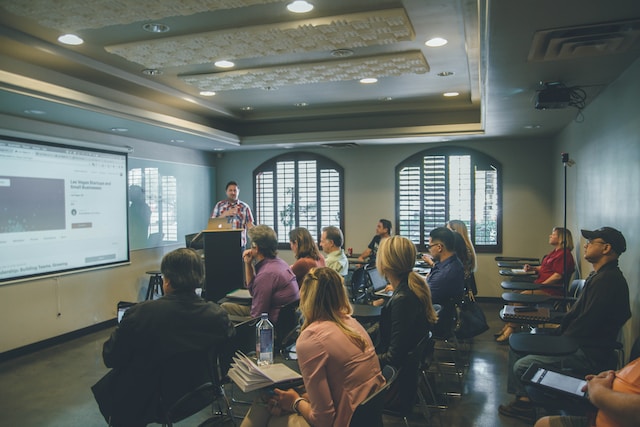Writing a dissertation is a challenging process that demands critical thinking, thorough research, and a compelling presentation of ideas. Interestingly, many of the skills honed in journalism—such as investigative research, fact-checking, and storytelling—can significantly enhance the dissertation-writing process. Journalists are trained to dig deep, question assumptions, and present findings in a clear and engaging way, all of which are crucial for producing high-quality academic work. For those seeking professional guidance in their academic journey, services like https://cescriptielatenschrijven.nl/scriptie-laten-schrijven/ can provide valuable support to help ensure success.
1. The Power of Investigative Research
Journalists are natural investigators, trained to ask probing questions and uncover hidden truths. This skill is invaluable when conducting dissertation research. Investigative research goes beyond surface-level analysis, requiring a deep dive into sources, data, and evidence to uncover insights that others may have missed.
• Asking the Right Questions: Journalists are skilled at framing questions that uncover new angles. When developing your research question, adopt a journalistic mindset. Ask yourself: What is the story behind the data? Why does this issue matter? Who is affected, and how?
• Pursuing Multiple Sources: Like journalists who cross-check sources for accuracy, dissertation writers should seek information from diverse perspectives, including academic articles, government reports, and firsthand interviews.
Tip: Keep a “research log” to document key questions, sources, and insights as you progress, just as a journalist might maintain notes for a story.
2. Fact-Checking and Source Evaluation
Accuracy is the backbone of journalism, and the same is true for academic writing. Ensuring that your dissertation is based on credible and verifiable sources is critical for maintaining academic integrity.
• Evaluating Sources: Journalists are trained to assess the credibility of sources by examining their expertise, objectivity, and reliability. Apply this skill to academic research by critically evaluating the quality of journal articles, books, and online resources.
• Cross-Referencing Information: Just as a journalist would verify facts by consulting multiple sources, validate your data and arguments by comparing them with other studies or expert opinions.
Tip: Use citation management tools like Zotero or EndNote to organize and track your sources efficiently, much like journalists use databases for their research.
3. Interview Techniques for Primary Data Collection

Interviews are a cornerstone of journalism, and they can also be a valuable tool for dissertation research. Whether you’re conducting interviews as part of a qualitative study or seeking expert opinions to supplement your literature review, journalistic techniques can enhance your data collection.
• Crafting Effective Questions: Journalists know how to ask open-ended questions that elicit detailed responses. Avoid leading or yes/no questions, and instead ask participants to explain, describe, or elaborate on their experiences or views.
• Building Rapport: Establishing trust with interviewees is a hallmark of good journalism. Approach your participants with respect, empathy, and professionalism to ensure candid and honest responses.
Tip: Record interviews (with permission) and transcribe them for accuracy. Tools like Otter.ai or Rev can save time and help you focus on analysis.
4. Structuring Your Dissertation Like a Story
Journalists are expert storytellers, capable of weaving facts and analysis into compelling narratives. This skill can make your dissertation more engaging and impactful.
• Creating a Clear Flow: Journalists follow a logical structure in their writing, often starting with a strong lead and building toward key points. Apply this approach to your dissertation by crafting a clear and organized outline that guides readers through your research journey.
• Engaging Your Audience: While academic writing is formal, it doesn’t have to be dry. Use journalistic techniques to make your dissertation engaging—start with a thought-provoking introduction, use vivid examples, and conclude with a powerful summary of your findings.
• Balancing Objectivity and Perspective: Just as journalists balance facts with analysis, aim to present a balanced view in your dissertation. Acknowledge limitations or counterarguments while reinforcing the significance of your research.
Tip: Use headings and subheadings to break down complex ideas into manageable sections, making it easier for readers to follow your argument.
5. Meeting Deadlines with Discipline
Journalists thrive on deadlines, a skill that can help dissertation writers stay on track and avoid last-minute panic.
• Creating a Writing Schedule: Journalists often work under tight deadlines, breaking their work into manageable tasks. Apply this approach by setting specific milestones for your dissertation, such as completing the literature review or drafting a chapter by a certain date.
• Staying Focused: Journalists work efficiently by prioritizing their most important tasks. Identify your “non-negotiables” each day, such as drafting a specific section or analyzing data, to ensure steady progress.
Tip: Use productivity techniques like the Pomodoro Technique or time-blocking to stay focused and maintain momentum.
6. Adapting to Challenges
Journalists are accustomed to working in unpredictable environments, where sources may cancel, stories take unexpected turns, or new information changes the narrative. Similarly, dissertation writing often involves unexpected challenges, such as uncooperative participants, inconclusive data, or shifting research scopes.
• Staying Flexible: Embrace change as part of the process. If your initial research plan isn’t working, pivot and explore alternative methods or questions.
• Problem-Solving: Treat challenges as opportunities to think creatively. For instance, if a data set is incomplete, consider alternative ways to analyze or interpret the available information.
Tip: Regularly check in with your advisor to discuss challenges and brainstorm solutions, much like a journalist would consult an editor for guidance.
Conclusion: Bridging Journalism and Academic Research
The investigative skills, critical thinking, and storytelling techniques of journalism are powerful tools that can elevate the quality of your dissertation. By adopting a journalist’s mindset, you can approach your research with curiosity, rigor, and creativity, transforming a daunting academic task into an engaging and meaningful project. Whether it’s asking the right questions, crafting compelling narratives, or meeting deadlines with discipline, the principles of journalism can guide you toward dissertation success.



